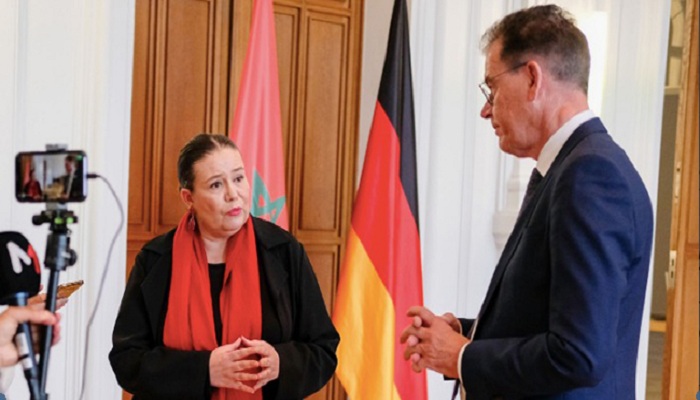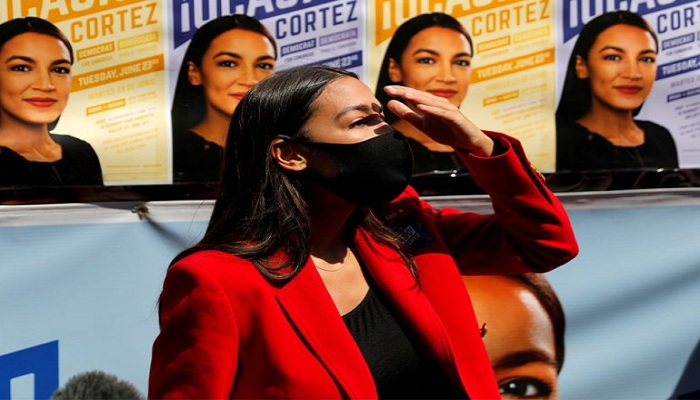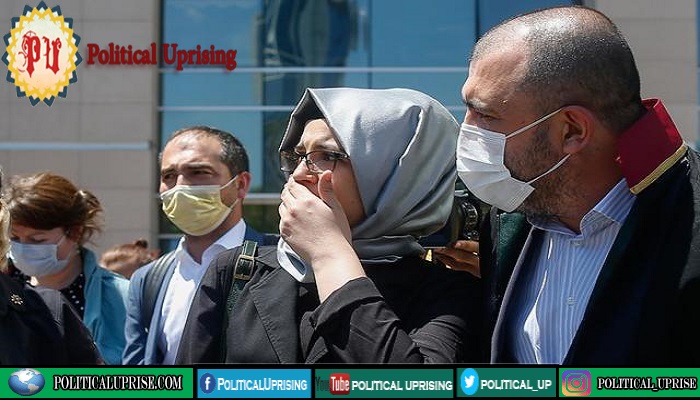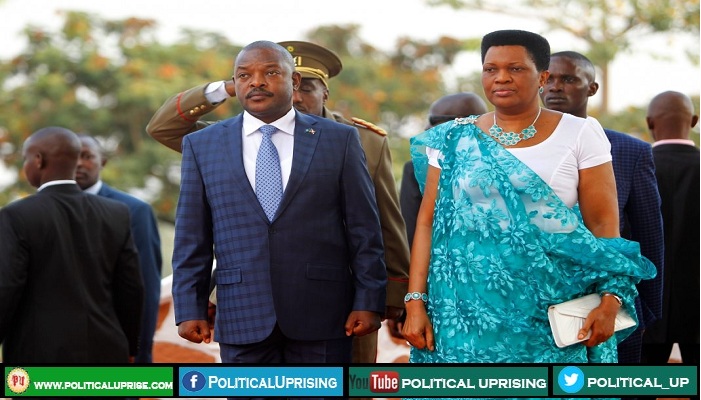Morocco has suspended diplomatic ties with the German embassy and German cultural organisations, prompting tit-for-tat moves.
Amid a diplomatic dispute between Morocco and Germany, widely understood to be down to differences over the disputed territory of Western Sahara, Spain, which ruled the desert region as a colony until 1975, has said it would seek a UN-negotiated solution.
Morocco suspended contact with the German embassy and German cultural organisations in the North African country last Monday, prompting tit-for-tat moves from Germany.
Spanish foreign minister Arancha Gonzalez Laya said Madrid would rely on the UN to broker an agreement between both sides.
Moroccan journalist to appear at a court for second hearing
“Spain maintains a firm and constant position which is supporting the search for a solution that must be political, fair, durable and mutually acceptable as established by the resolutions of the UN Security Council,” she said in a statement.
“It is not for Spain to promote a concrete solution but to support the efforts of the UN to reach a mutually acceptable solution for the parties.”
Rabat announced its moves last week citing “deep misunderstandings” on “issues fundamental for Morocco”.
Some analysts believe the measures are an attempt by the North African state to make a stand over its claim to the sovereignty of disputed Western Sahara.
Also last week, the European Court of Justice as previously scheduled heard submissions over the Morocco-European Union trade agreement which are disputed by the Polisario Front, which fights for the independence of Western Sahara.
In Rabat, anger is brewing over Germany’s criticism of former US President Donald Trump’s decision in January this year to recognise Moroccan sovereignty over Western Sahara.
Trump broke with decades of US diplomatic tradition to recognise the Moroccan claim to the disputed territory in return for Rabat normalising relations with Israel.
Which countries in Europe have opened their borders?
At that time, Morocco was already feeling snubbed by Germany, which had failed to invite Moroccan officials to a congress in Berlin in January 2020 to discuss Libya’s future.
“This row with Germany is an attempt by Morocco to pressure the European Union, and in particular Spain as a former colonial power, to adopt their claim over Western Sahara,” Ignacio Cembrero, a Madrid-based journalist and author who has written extensively about Morocco said.
“However, it seems unlikely that the EU will do this for now at least in public.”
Rabat has had mostly good relations with Berlin, which is the seventh-largest trade partner for the North African state and provided Morocco with 1.3 billion euros in loans and donations in 2020.
But the ECJ decision may prompt a fresh crisis in relations between Rabat and Europe, analysts said, if the judges rule in favour of the Polisario Front.
The Polisario Front contends that Moroccan exports from the desert territory amount to looting its natural resources, which include phosphates, agricultural goods and fish caught in waters off Western Sahara.
Gilles Devers, a lawyer representing the Western Saharan independence movement, told the AFP news agency the Polisario was waging a war against “Moroccan colonisation”.
Germany unsatisfied over Afghan peace talks progress
Moroccan foreign minister Nasser Bourita told the state news agency MAP Rabat would repel what he called this “judicial harassment” and defend the kingdom’s partnership with Europe.
Cembrero believes the ECJ judgement, which is not expected until later this year, could go in favour of the Polisario Front.
“If the ruling goes in favour of the Polisario Front, Morocco may react. It is unclear how at this moment. The trade with Europe is very important to Morocco and they may extract some revenge if the court rules against them,” he said.
Isaias Barreñada, a Madrid-based expert on Western Sahara, believes Morocco has chosen to start a diplomatic dispute with Germany because the European country is a member of the UN Security Council.
“Europe will not fold in its support for seeking a UN solution. But Germany is on the UN Security Council. This may be why Morocco has chosen to make the point with Berlin. It may be trying to signal that it will not be pushed around,” Barreñada, who teaches international relations at Madrid’s Complutense University said.
Far from being an isolated patch of desert, Western Sahara has considerable economic importance for Morocco.
In 2019, Rabat exported $524m worth of fish, tomatoes, and melons from Western Sahara to Europe, according to European Commission figures.
In 2018, the ECJ ruled that an EU-Moroccan fishing agreement did not apply to Western Sahara since the consent of the Saharawi people had not been obtained for fishing in a referendum.
Germany says decision to impose border controls a temporary measure
In order to circumvent the ECJ ruling, the European Parliament sent a fact-finding mission to consult with Saharawi groups but analysts some observers claimed these groups were approved by Morocco.
But the EU later said that this met the ECJ’s demands that the Saharawis had been consulted.
The Polisario Front has claimed that this allowed Brussels to exploit Western Sahara’s resources without the EU officially recognising Moroccan sovereignty over the territory.
Morocco has long insisted its claim to sovereignty over Western Sahara is non-negotiable.
As soon as Spain relinquished control of the colony in 1975, Rabat fought a war against the Polisario Front which lasted until 1991.
A ceasefire in 1991 was meant to be followed by a referendum on self-determination for the region but this has never materialised.
The UN has sought to broker talks on the territory’s future and while both sides have said they will come to the negotiating table, no solution has been reached. The latest talks ground to a halt in 2019.
NATO and Germany warn against US troop cuts
Military tensions rose in November when Morocco sent troops into a buffer zone to reopen the only road between Morocco to Mauritania and the rest of Western Africa.
International support for Morocco’s side in the dispute appears to be growing, with a number of African and Arab states recognising Rabat’s sovereignty over Western Sahara.
However, some African and Eastern European states continue to recognise the Sahrawi Arab Democratic Republic which Polisario leaders proclaimed in 1976.
“What is most important for Rabat is maintaining trade rights to Western Sahara and it will not back down on staking its claim,” said Barreñada.
Courtesy :Al jazeera



